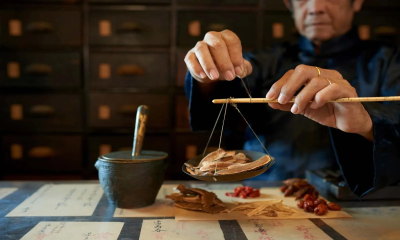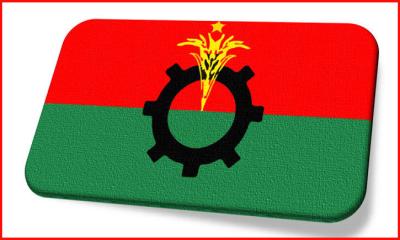Dengue fever is a prevalent mosquito-borne viral disease that affects people of all ages, including babies and children. It is caused by the dengue virus, which is primarily transmitted through the bite of infected Aedes mosquitoes. In Bangladesh, dengue fever poses a significant health risk, particularly during the monsoon season when mosquito population increases. So during this time taking proper measurements to safeguard people especially babies and children from dengue fever is very important.
Dengue Symptoms in Babies and Children
Recognising the symptoms of dengue fever in babies and children is crucial for timely intervention. While some individuals may experience mild symptoms or remain asymptomatic, others may develop severe manifestations. Common signs of dengue fever in babies and children are included below.
- High fever often reaching 104°F (40°C) or higher for 2 to 7 days
- Rash usually after the fever subsides
- HeadacheBody aches includeing joint and muscle pain
- Nausea, vomiting, and loss of appetite
- Fatigue and weakness
- Bleeding from the nose, gums, or small bruises in severe casesEye Pain
It`s important to note that symptoms can vary from mild to severe, and some children may not exhibit all of these symptoms. If you suspect your child has dengue fever, it`s essential to consult a healthcare professional for proper diagnosis and treatment.
10 Prevention Measures to Save Babies and Children from Dengue
Protecting babies and children from dengue fever requires a comprehensive approach that focuses on prevention. Here are ten essential tips to safeguard babies and children from dengue fever.
Eliminate Mosquito Breeding Sites
Mosquitoes that transmit the dengue virus breed in standing water. Try to regularly inspect your surroundings and eliminate any sources of stagnant water. It would be wise to empty and clean water containers such as flower pots, buckets, and pet bowls, ensuring that water storage tanks are tightly covered. Also discard any items that can collect water, such as old tyres or unused containers. Overall try to keep your surroundings clean and tidy.
Use Mosquito Nets and Screens
When your child is sleeping, you can ensure a mosquito-free sleep environment by installing fine mesh mosquito nets over beds and windows. Make sure the nets are properly tucked in and free from holes. This creates a physical barrier that effectively prevents mosquito bites.
Wear Protective Clothing
It is suggested to dress your child in clothing that covers their arms, legs, and feet. Lightweight, loose-fitting, long-sleeved shirts and long pants are recommended. Tucking the pants into socks and choosing closed-toe shoes can further reduce exposed skin. Light-colored clothing is preferable as mosquitoes are attracted to darker colors.
Add Immunity Boosting Foods to Diet
Having a strong immune system provides better defense against diseases, including dengue fever. Enhancing immunity can be achieved by incorporating certain foods into your children`s diet. These include yogurt, turmeric, ginger, garlic, spinach, citrus fruits, and almonds, all of which contribute to strengthening the immune system.

Children suffering from Dengue (Representational Image)
Apply Mosquito Repellent
It would be great to use a mosquito repellent to exposed skin areas specifically formulated for children. Look for products that contain DEET (N,N-diethyl-meta-toluamide), picaridin, or IR3535 as active ingredients. Follow the instructions on the repellent label for proper application. Kindly avoid applying repellent to children`s hands, as they may put them in their mouths or eyes. Try to ensure the repellent does not come into contact with open wounds.
Avoid Peak Mosquito Activity Hours
Mosquitoes that carry the dengue virus are most active during the dawn and dusk periods. It would be best to limit your child`s outdoor activities during these times, especially in areas where mosquitoes are prevalent. If your child has to be outdoor, kindly make sure they are dressed in protective clothing and have mosquito repellent applied.
Use Mosquito Repellent Devices
You can also utilize mosquito repellent coils, mats, or electronic vaporizers indoors. These products release a repellent substance that discourages mosquitoes from entering your home and helps create a safer environment for children and babies.
Ensure Proper Hygiene Practices
It is crucial to teach children about the importance of personal hygiene, emphasizing regular handwashing with soap and clean water. Proper hand hygiene helps prevent the spread of germs, including those carried by mosquitoes. Encourage children to wash their hands thoroughly before meals, after using the restroom, and after outdoor activities.
Educate Children about Mosquitoes
The best way to protect children is to teach your child about the importance of avoiding mosquito bites and how to protect themselves. Explain why it is important to wear protective clothing and use mosquito repellent. You may encourage them to notify you if they notice mosquito bites or experience any symptoms of illness.
Seek Medical Attention Promptly
If your child develops symptoms such as high fever, severe headache, joint or muscle pain, rash, or bleeding, seek immediate medical attention. These symptoms could indicate dengue fever or another serious illness. Early diagnosis and proper medical care is the first priority for managing dengue fever effectively.

(Representational Image)
Conclusion
Dengue fever can be a serious illness. Protecting babies and children from dengue fever is of utmost importance to ensure their health and well-being. By understanding the symptoms, risk factors, and prevention measures, parents and caregivers can take proactive steps to safeguard their little ones from this mosquito-borne disease. Consistent implementation of these measures can significantly reduce the risk of mosquito bites and protect babies and children from dengue fever.






-20260108103159.webp)































